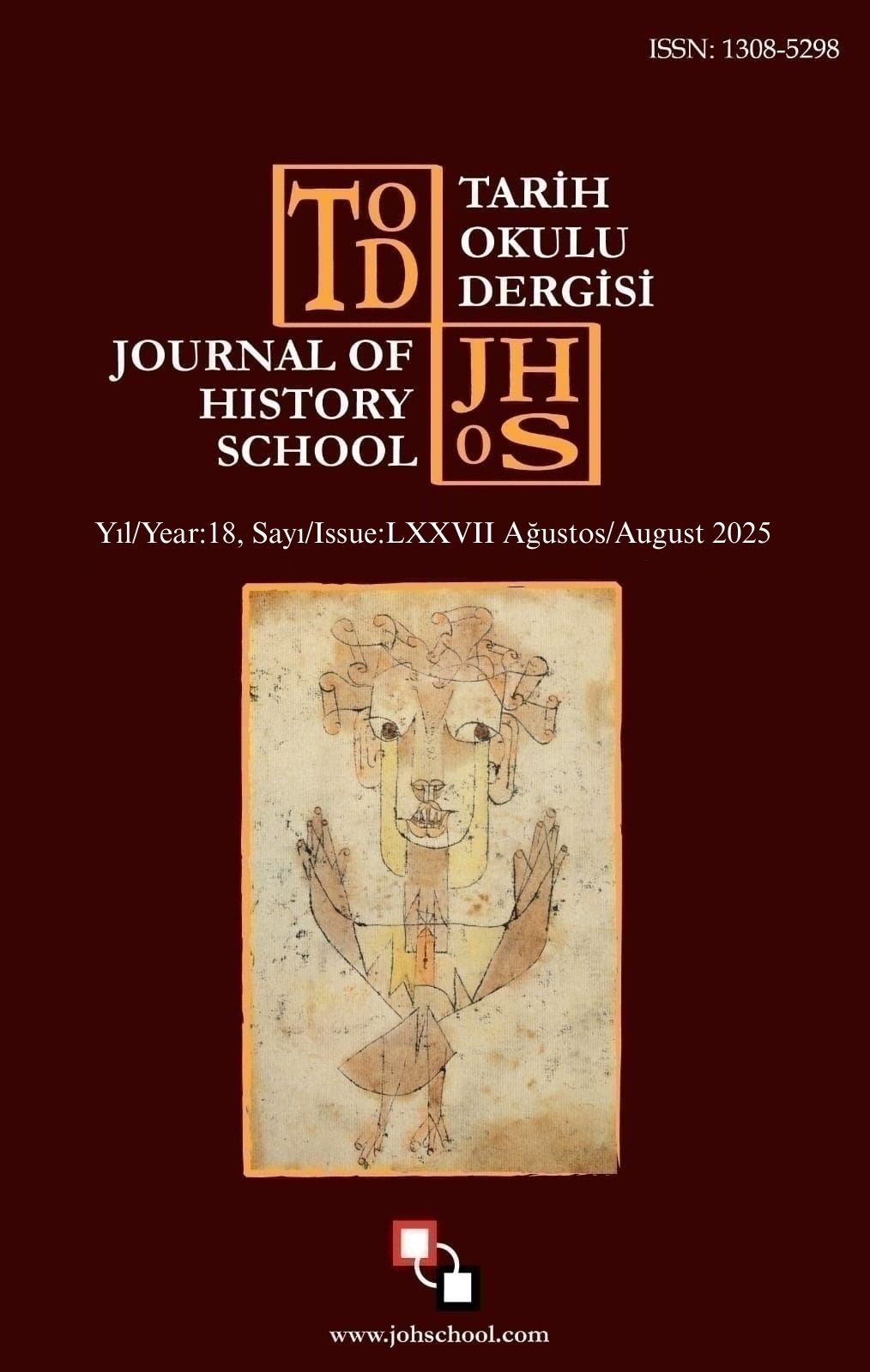Batı-Çin Etkileşimi Bağlamında Batı Asya İnançlarından Zerdüşt İnancının Çin'e Geçişinin Disiplinler Arası İncelemesi
Author :
Abstract
Dinlerin ortaya çıkış sürecine benzer bir durumun Çin'de mevcut olmadığı ve Çin'in böyle bir olguya sahip olmayan bir medeniyet olduğu düşünüldüğünde, teolojik, teo-politik güdümlü Çin-Batı etkileşiminin gerçekleşebileceği zeminin temel konu ve faktörlerinin neler olduğu, din, inanç temelli bir iletişimin mümkün olup olmadığı gibi soruların cevaplanması konusu gündeme gelmiştir. Bu araştırmada ise Çin-Batı etkileşimi konusunu salt teoloji, din ve siyaset (teo-politik) gibi disiplinler zemininden ziyade, teoloji, din sosyolojisi ve sinoloji gibi disiplinler zemininde ele alınması tercih edilmiştir. Bu bağlamda araştırmamızı sinoloji, din sosyolojisi çerçevesinde Çin-Batı etkileşimi örneği ile temellendirilmiştir. Bu doğrultuda araştırmamızın ilham kaynağı İran'dan Çin'e geçmiş olan “Ateşe Tapan” ya da diğer ismiyle “Zerdüştlük” olarak da bilinen din’in, Çin'de ve Çin çalışmalarında nasıl okunduğu ve analiz edildiği tartışılarak başlanmıştır. Akabinde Din Sosyolojisi bağlamında incelenerek, tarihsel köklerinde ilahi ya da dini bir varoluş kültürüne sahip olmayan bir medeniyetin az ya da çok meselesine girmeden eskatolojik bir bakış açısını nasıl benimsediği ele alınmış, dini bir imge ve düşünceyi nasıl kanıksadığı yorumlanarak incelenmiştir. Tüm bu çalışmanın ilham kaynaklarından bir diğeri de Sinoloji araştırmaları olmuştur. Çalışma Sinoloji bilimi kapsamında elde edilen verilerin Din Sosyolojisi ile harmanlanması ve yorumlanmasıyla vücuda getirilmiştir.
Keywords
Abstract
Considering the situation similar to the process of the coming into existence of religions does not exist in China, in other words China is a civilization that does not have such a phenomenon, the issue of answering questions such as what are the main issues and factors of the ground on which theological, theo-political guided Sino-Western interaction can take place has come to the fore. However, in this research, we have chosen to address the issue of Sino-Western interaction on the grounds of disciplines such as theology and sociology of religion in accordance with sinology, rather than on the grounds of disciplines such as religion and politics (theo-politics). Hence, we have grounded our research with an example of Sino-Western interaction. In this respect, the source of inspiration for our research is Zoroastrianism, also known as Fire-worshipper or in Turkish called as Zerdüşt(lük), which has passed from Persia to China, and we started by discussing how Zoroastrianism is read and analyzed in China and in Chinese studies. Subsequently, by examining it in the context of History of Religions and Sociology of Religion, it was examined by interpreting how a civilization that does not have a culture of divine or religious existence in its historical roots adopts an cosmogonical or eschatological perspective without entering into the issue of less or more, and how they take a religious image and thought for granted. Another source of inspiration for this entire study has been Sinology research. The study has been composed by blending and interpreting the data obtained within the scope of Sinology with the Sociology of Religion.





